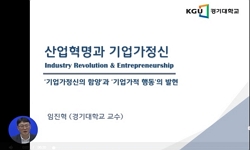The Dawn if Labor(『노동의 새벽』) published by Pulbid(풀빛) in 1984 and The Dawn if Labor(『노동의 새벽』) published by Haenem(해냄) in 1991 are the same collection of poems. They are different only the name of the publisher. But, I...
http://chineseinput.net/에서 pinyin(병음)방식으로 중국어를 변환할 수 있습니다.
변환된 중국어를 복사하여 사용하시면 됩니다.
- 中文 을 입력하시려면 zhongwen을 입력하시고 space를누르시면됩니다.
- 北京 을 입력하시려면 beijing을 입력하시고 space를 누르시면 됩니다.
https://www.riss.kr/link?id=A76123843
- 저자
- 발행기관
- 학술지명
- 권호사항
-
발행연도
2004
-
작성언어
Korean
- 주제어
-
등재정보
KCI등재
-
자료형태
학술저널
- 발행기관 URL
-
수록면
229-247(19쪽)
- 제공처
-
0
상세조회 -
0
다운로드
부가정보
국문 초록 (Abstract)
Pak No-Hae who have been converted form the spreader of a revolution into the spreader of changing has a great idea on his insistence for us. But his insistence on changing doesn't seem a result of the concrete consequence, gained by introspection and practice, but seems a result of the abstract one, that caused by the ruin of the socialism and the confinement of his body. It seems to have some problem. So far it makes us wonder that Par No-Hae in 1990s was too captivated by the inner change like as he in 1980s was too abstracted by the change of the society.
Therefore, what Pak No-Hae really needs is not the tenacity for the change but the restoration of the balance between the social change and the inner change through the introspection and action. It's a so commonplace comment, but we loves Pak No-Hae that's why we criticise him.
The Dawn if Labor(『노동의 새벽』) published by Pulbid(풀빛) in 1984 and The Dawn if Labor(『노동의 새벽』) published by Haenem(해냄) in 1991 are the same collection of poems. They are different only the name of the publisher. But, I intend to accept The Dawn if Labor of Pulbid, in the other hand I intend to disapprove of The Dawn of Labor of Heanem.
Pak No-Hae who have been converted form the spreader of a revolution into the spreader of changing has a great idea on his insistence for us. But his insistence on changing doesn't seem a result of the concrete consequence, gained by introspection and practice, but seems a result of the abstract one, that caused by the ruin of the socialism and the confinement of his body. It seems to have some problem. So far it makes us wonder that Par No-Hae in 1990s was too captivated by the inner change like as he in 1980s was too abstracted by the change of the society.
Therefore, what Pak No-Hae really needs is not the tenacity for the change but the restoration of the balance between the social change and the inner change through the introspection and action. It's a so commonplace comment, but we loves Pak No-Hae that's why we criticise him.
목차 (Table of Contents)
- Ⅰ. 같으면서 다른 두 권의 『노동의 새벽』
- Ⅱ. 열광과 연대에서 환멸과 소외로
- Ⅲ. 두 개의 감옥, 민중성과 대중성
- Ⅳ. 알리바이로서의 시
- Ⅴ. 긴 노동의 밤, 그리고 먼 노동의 새벽
- Ⅰ. 같으면서 다른 두 권의 『노동의 새벽』
- Ⅱ. 열광과 연대에서 환멸과 소외로
- Ⅲ. 두 개의 감옥, 민중성과 대중성
- Ⅳ. 알리바이로서의 시
- Ⅴ. 긴 노동의 밤, 그리고 먼 노동의 새벽
- 參考 文獻
- Abstract
동일학술지(권/호) 다른 논문
-
- 중앙어문학회
- 이유미(Yi Yu-mi)
- 2004
- KCI등재
-
- 중앙어문학회
- 安仁淑(An In Suk)
- 2004
- KCI등재
-
- 중앙어문학회
- 정상근(Jeong Sang-gun)
- 2004
- KCI등재
-
- 중앙어문학회
- 嚴敬鈺(Eom Kyung-Ok)
- 2004
- KCI등재





 DBpia
DBpia






